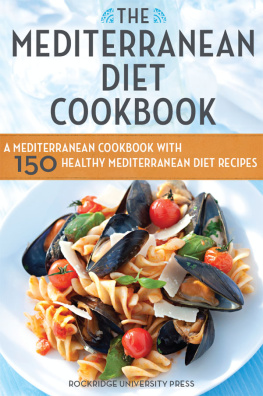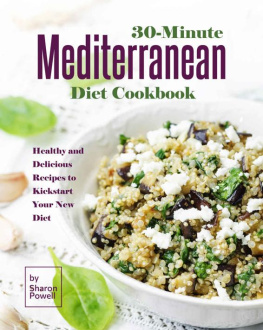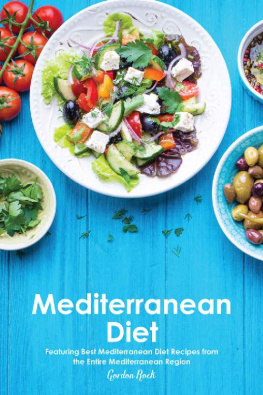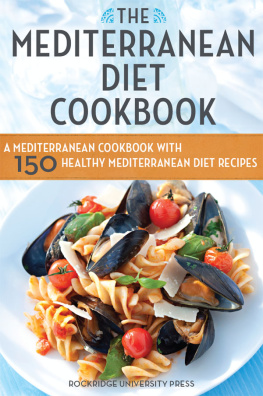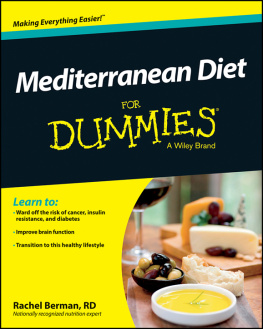Introduction
Eating Right and Eating Smart is the new lifestyle choice of the millennials. The true essence of life can be experienced, when one is at their optimum physical wellness. People are becoming more aware of what they are eating, recognizing the potential health risks they put themselves on by neglecting their everyday diet. Wellness is not just a word that you can read somewhere and forget, you have to constantly seek it and maintain it in order to lead a healthy lifestyle.
If you are new to the Mediterranean diet, then you should know that this particular diet has been recommended by nutritionists from around the globe since it replenishes our body with all the essential nutrients. The diet is a perfect way to maintain an ideal combination of proteins, vitamins, anti-oxidants, dietary fibers, healthy fats, and vital minerals in every meal. And everyone knows that balanced nutrition is the key to excellent health.
What is Mediterranean diet
As the name suggests, the Mediterranean diet is all about the food culture shared in the countries belonging to the Mediterranean region of Europe and Middle East. The name comes from the Mediterranean Sea, and the countries around it, including Greece, Spain, and Italy. These countries along with Morocco are known as the Mediterranean region. Communities living in this region have common gastronomical values, which promote consumption of wholesome foods and reduced dependency on unhealthy processed foods. It is all about making smart food choices to lead a better life that is one of the fundamentals of the Mediterranean diet, one of the healthiest diets around the world.
History & Food Culture
Ancient Romans paved a crucial path in shaping the history of the Mediterranean diet. The origin of the diet is believed to be around the Middle Ages though, when the first food traditions were praised in the poems of local writers.
Ancient Romans were fond of forming their diet around plenty of fish, fruits, vegetables, olives, bread and wine. Their love for simple yet flavorful foods has spread around the Mediterranean region and gave rise to their unique food culture.
Ancel Benjamin, an American scientist, was one of the first to examine health benefits of the diet and recommend it to his patients. Later, many physicians and nutritionists began studying the diet and concluded that it is beneficial in improving heart health by reducing bad cholesterol levels and controlling high blood pressure.
Today, thousands of people across the world are getting inspired by the Mediterranean food culture and initiate changes in their dietary habits, with a clear perspective for better health and happier life in the long run. The simplicity in preparation paired with the wholesomeness and deliciousness of the meals is what has made so many people fall in love with this diet, though it even cant be classified as a diet, but more like healthy nutrition choices.
The Mediterranean diet is based on consuming heart-healthy unrefined oils, whole grains, loads of vegetables and greens, wholesome fruits, fish and seafood, beans, legumes, poultry and many other healthy food groups. Due to their focus on health-friendly dietary foods, people living in the region are reported to have healthier life with increased life expectancy and are less prone to critical health diseases.
Health Benefits
Smart food choices combined with the simplicity of food preparation do have their merits and this diet is no exception. It offers a myriad of health benefits to its loyal followers.
Wholesome diet pattern helps to improve heart health by reducing the level of bad cholesterol and preventing abnormally high blood pressure. It prevents many heart diseases by supplying the body with heart-healthy fats. And better heart health is associated with increased life expectancy.
Reduced appetite level resulting from consumption of whole foods helps keep your calorie levels under control. The diet helps to deliver natural weight loss by reducing the dependency on junk foods and increasing the consumption of healthy unprocessed foods.
Mineral-rich foods contribute to better bone health and prevent conditions such as osteoporosis, which is linked with fragile bone health.
Increased supply of essential nutrients and antioxidants helps to boost energy levels, promote mental clarity, improve memory functions, and increase concentration.
The diet also helps to improve immune strength and overall health to prevent critical diseases such as diabetes, Alzheimers, and certain types of cancers.
About the Book
The book acts as a complete guide and includes everything that you need to know about the Mediterranean diet. It covers a glimpse of history of the diet, valuable insights about the food culture along with a list of foods to eat and avoid. The book offers exclusive recipes covering authentic Mediterranean meals such as Breads, Antipasti, Snacks, Soups, Salads, Pasta, Pizza, Fish & Seafood, Poultry & Meat, Beans, Grains, & Desserts. Each recipe is accompanied with details about its micronutrients and easy to follow cooking directions.
Mediterranean Food Dictionary
On the Mediterranean diet, certain foods are restricted at all, some foods are allowed in moderation, while the entire focus being on a special set of healthy foods. This section covers the basis of the diet along with what you should eat and what to avoid.
The Diet Code
Mediterranean diet follows its own code, which has made it one of the healthiest diets around the world. Below you will find the key components or elements that form the basis of the diet.
Plant-based foods including fresh vegetables, fruits, whole grains, spices, and herbs are the heart of this diet, covering around 60-70% of the daily foods to eat. They are rich in minerals, antioxidants and fiber, and thus provide anti-inflammatory properties to help keep your intestinal tract healthy. In addition, they minimize the risk of chronic diseases and reduce food cravings by being very satiating, due to a wise combination of healthy fats, proteins and good carbohydrates.
Legumes and beans are also an important part of the diet. They are rich in energy-boosting protein and healthy fibers, as well as such nutrients as iron. Rich in healthy poly- and monounsaturated fats and a variety of nutrients like selenium and zinc, nuts, and seeds are also included in the diet in moderate amounts.
Instead of using salt, spices and herbs are to be used to add different flavors. Excessive salt (rich with sodium) is proven to increase blood pressure, which then becomes a reason for developing many cardiovascular disorders.
Butter is less preferred, and is usually replaced with healthier fats like coconut oil, ghee, canola oil and extra virgin olive oil . Eggs and dairy products including cheese, yogurt, etc. are present in the diet as well since they are a wonderful source of protein to add to the meals along with vital bone-friendly minerals (calcium and potassium)
Olive oil is the most often used oil in the Mediterranean diet, especially when it comes to salad dressing, dips, etc. In addition, Olive oil is considered heart-friendly as it contains high levels of antioxidants and monounsaturated fatty acids. You need to make sure to differentiate between the different types of olive oils, as they have different peak burning temperature, which makes extra virgin olive oil not suitable for frying, or baking at more than 320 degrees F.
Consumption of organically-grown poultry, fish and seafood (rich with omega-3 fatty acids) is encouraged in the Mediterranean being a healthy source of animal-derived protein, and macronutrient properties (high contents of iron, vitamin d, vitamin B and others). However, consuming red meat is restricted to a few times per month.



